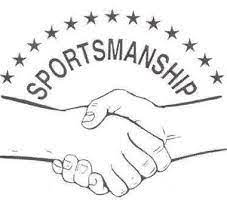To start off this week, we talked about our perception. Often in our public lives, we and others can have wildly differing perceptions about what is happening. For example, a person could try to be enthusiastic, only for others to feel that they are dominating.
Whenever we try to gauge and respond to any information, we go through a ladder of inference. However, we must realize that each person's takeaway from this ladder is different, and we must prepare for the same. At every step of this ladder, people can differ, and perhaps make mistakes, due to various reasons like information asymmetry, cultural differences, different styles of reacting, etc.
A large part of these differences can be found in our differences in values; values are derived from our cultures, life experiences, network, etc, and hence is different for each person.
Sometimes we take disagreements unnecessarily personally. However, in most situations, all parties are trying to find a course of action that is mutually beneficial but are approaching the matter at hand with different perceptions. It is important to realize this, so we can remain open minded while working towards bridging the gap
Our perceptions are directed by our Mental Model or "software of the brain" - the way we think, feel, and react to our environment. In order to have a more nuanced and Mental Model, we have to make a conscious effort to update ourselves frequently. It is imperative that we seek out new experiences beyond our comfort zone for the same.
Stereotypes
We use stereotypes when we are trying to gauge someone or something with very little information. It is important to be aware of a wide range of cultural nuances, but in a situation where that isn't possible it was suggested that stereotypes can be useful to prevent misunderstandings, albeit only briefly at the surface level. Personally, I disagree with this: any lack of clarity is worth clarifying. As we will see later, I feel this is a place where being vulnerable is more important than being polite.
When stereotypes affect the way we feel about people, they become prejudices, and when these prejudices bubble out, we see discriminatory acts being committed. Stereotypes also lead to the Halo effect, where we extrapolate inferences into unrelated areas, such as assuming a person who speaks well is smarter.
Due to its steep downsides, it is important to actively work towards breaking down stereotypes and avoiding prejudices. We need to start by asking ourselves, how would we feel if we're judged by someone else who knows little about us. It is critical we build up the courage to constantly question our Mental Model.
Vulnerability
We started off this session with an exercise on the Johari window. We first analyzed our own characteristics that we are open about (Open Self) and we tend to hide (Hidden Self). Then, we went into groups of 4, giving each other our thoughts on them as a person, in an attempt to discover personality traits that we aren't aware of but others are (Blind Self).
Personally, being quite the open book, I didn't have much, if at all, in my Hidden Self and Blind Self categories. However, I suspect I've only scratched at the surface of my personality, and so I ought to have a lot of characteristics that neither I nor others are aware of (Unknown Self)
We then watched a TED talk on vulnerability. Many people have a large Hidden Self, trying to portray a perfect image of themselves to everyone. But in reality, everyone is facing their battles. It is better for relationship building and our mental health to be brave enough to be vulnerable and honest with those we trust. Vulnerability helps us learn about ourselves in two ways: sharing with each other helps us uncover our Blind Self, and pushing out of our comfort zone helps us uncover our Unknown Self. Thus, we must strive to create tight relationships where we trust the other person and be brave enough to be vulnerable with them.






Comments
Post a Comment